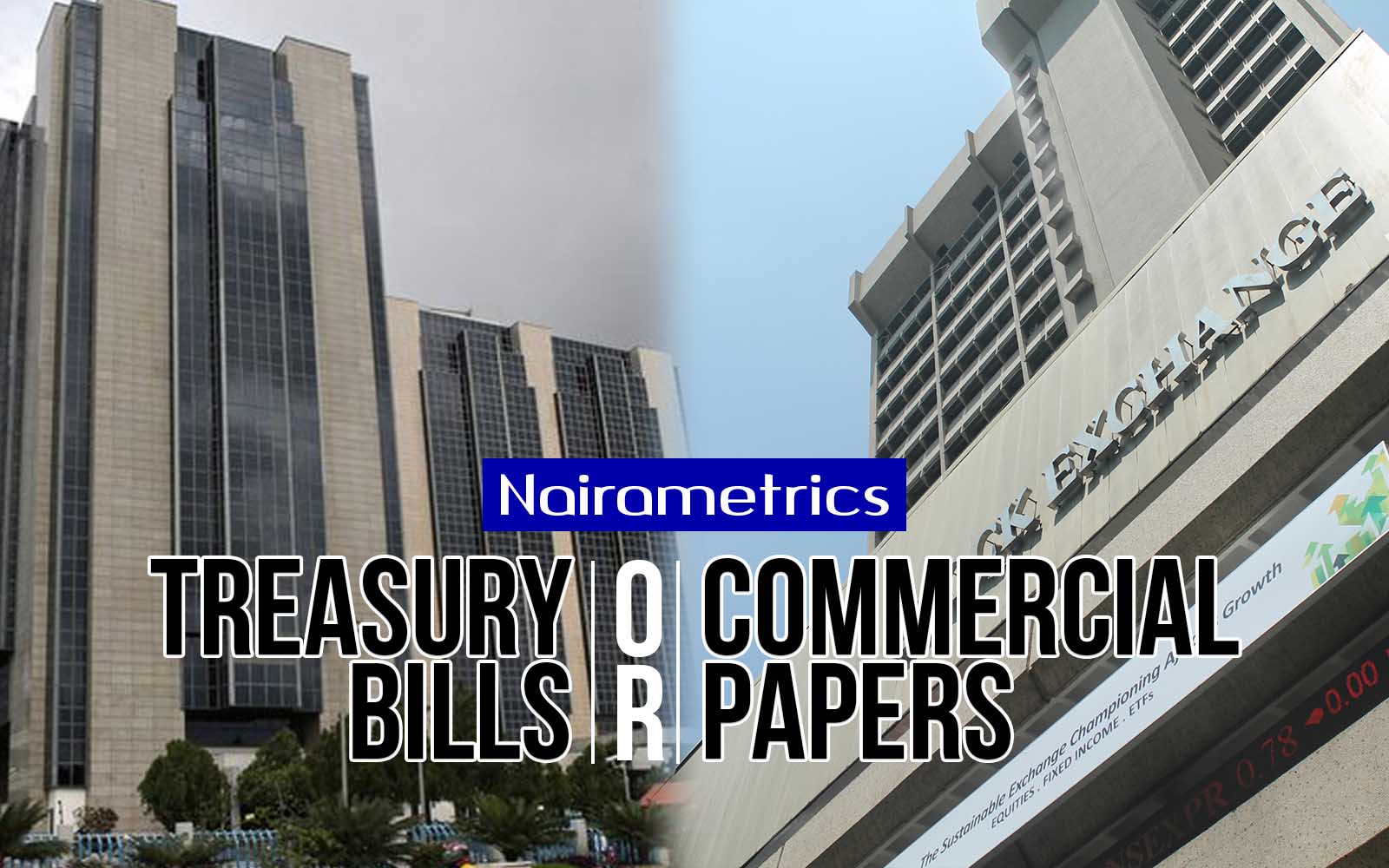In response to yet another question from one of my avid readers, I will be talking about the choice between treasury bills and commercial papers as investible money market instruments. Investing in the capital market, like most productive endeavors in life, presents with choices.
By definition, a commercial paper is a short-term promissory note issued by corporations in order to finance current expenses and working capital, among others. In the same way, the Federal Government, through the Central Bank, issues treasury bills to provide short-term funding for government budget deficit.
What is a money market?
One similarity between treasury bills and commercial papers is that both of them are money market securities and as such, they trade in the money market. A money market is the sector of the capital market where instruments characterized with high liquidity and very short maturities are traded. Securities that are traded in the money market include, bankers’ acceptances, certificates of deposit, money market funds, commercial papers and treasury bills.
Another similarity between commercial paper and treasury bill is that when you buy either of them, you are lending money to the issuer who is obligated to pay you back at maturity with interest. Like Treasury Bills, Commercial Papers are issued at a discount to par value.
A difference between them is that while treasury bills are issued by the government, Federal Government of Nigeria, commercial papers are issued by the private sector or corporate organizations. Commercial papers are usually unsecured much like treasury bills, but TBs come with the full faith of the federal government.
Differences in Risk
The major difference between commercial papers and treasury bills is in their risk characteristics. Though both are short term highly liquid instruments, Commercial papers carry more risk than treasury bills in that they carry a higher default probability than treasury bills. Because treasury bills are issued by the government which is unlikely to default compared to companies that issue commercial papers, treasury bills are very low risk instruments. While treasury bills are backed by the full faith and credit of the federal Government of Nigeria, commercial papers are backed by the reputation and credibility of the corporate issued as contained in their credit rating.
Differences in Return
Treasury bills differ from commercial papers in the investment returns they offer. It is a known fact in investment, the higher the risk, the higher the expected return. On that basis, it is expected, rightfully so, that commercial papers should yield higher return than treasury bills. The difference in the rate is the premium for the added risk that investors have to bear by investing commercial papers. Interest rates payable by treasury bills is called risk free rates and it forms the bench market around which other rates revolve.
Risk Vs Return Choice
As noted above, the choice between treasury bills and commercial papers boils down to a choice between risk and return and that choice depends on the investors’ risk tolerance. For those that are risk averse, those that are retired already or very close to doing so, and those that cannot afford to lose any of their invested capital, treasury bill will be more appropriate choice. However, for the risk lovers, the younger investors with time on their hands, and those that do not mind as much if they lose any part of their invested capital, taking the additional risk of for a couple basis points of added return from commercial paper may be a better choice.
Minimum Investment
Normally, the issuer of a commercial paper usually determines the minimum subscription, an overview of existing and past commercial papers in Nigeria indicates that the minimum subscriptions are usually in the neighborhood of ₦5 million compared to the ₦100,000 initial subscription required for treasury bill investments. This makes the choice almost obvious for the investor with little means.
Before you Choose
Before you decide which of the two to choose, it may be good to ensure that you have the expertise to understand and evaluate and monitor commercial papers vis a vis treasury bill. Most importantly, you should evaluate whether the incremental yield or risk premium that comes with commercial papers justifies the additional risk you are taking, if you decide to invest in commercial papers, in line with your risk tolerance and appetite.
Depending on how financially and numerically savvy you are, you may wish to conduct a review of the balance sheet and financial statement information of issuers to get a higher level of comfort about the issuers’ stability. If you intend to invest in multiple commercial papers, or if you intend to invest a sizeable amount of money, it may be advisable to diversify across issuers and/or industry sector.
A way to manage the risk premium incidental on commercial papers is to place a limit on the percentage of your overall portfolio that is to be invested in commercial papers. You can as well place a limit on the percentage of commercial papers by issuers and industry sector or even by credit rating.






















